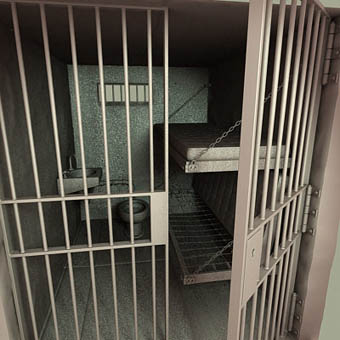Written by Steven Gledhill for FREEdom from MEdom Project…
It is God working in you to will and to act according to His purpose. Philippians 2:13
What is ambivalence? Ambivalence is having similar intensity of desire and motivation for more than one thing, but the things are opposite from each other. In other words, to have the one thing means forfeiting or sacrificing the other thing. When your alarm goes off in the morning, you might want desperately to stay in bed, but you also want the beneficial rewards that come with fulfilling the responsibilities of the day. Getting up might feel painful at first for a little bit of your time, but you adjust in order to experience the pleasure that comes with doing the good and right things you need to do throughout the day.
The scale of ambivalence is broad and the rewards and consequences escalate and the pleasure and the pain intensify. You might love your spouse and your children very much and hold them dear to your heart. Then perhaps at the job, or in that classroom, or at that commuter train terminal, or the person you carpool with…  a relationship develops that becomes special to you for different reasons (usually sexual), and brings desire and temptation into your thoughts and beliefs that challenge all that you value and can sabotage your moral structure in the name of deserved gratification. You find yourself justifying the “relationship” as nothing more than this or that. It’s merely conversation… then becomes a ritual of meeting at a certain time in a certain place at the job site in the context of “we’re working”… then coffee together in the break room… then lunch… then drinks after work… then dinner and drinks after work… then… can’t stop thinking about it.
a relationship develops that becomes special to you for different reasons (usually sexual), and brings desire and temptation into your thoughts and beliefs that challenge all that you value and can sabotage your moral structure in the name of deserved gratification. You find yourself justifying the “relationship” as nothing more than this or that. It’s merely conversation… then becomes a ritual of meeting at a certain time in a certain place at the job site in the context of “we’re working”… then coffee together in the break room… then lunch… then drinks after work… then dinner and drinks after work… then… can’t stop thinking about it.
Or maybe it never gets that far. Maybe the relationship never evolves beyond your imagination. You simply entertain the fantasy. The relationship grows in your head, drawing you in, until it interferes with your attention to your spouse. You feel guilty; perhaps shame sets in. It becomes especially difficult to pray. You confess it to God, and then drift right back into the imaginary relationship fantasy. You love your spouse. You love God. The ensuing struggle is your ambivalence toward what is good and right and best for you and all involved.
We can be infatuated enough with anything that and powerfully drawn to a thing that it becomes obsessive, ritualistic, compulsive, even deviant. The primary issue at the heart of the matter is desire. What do you want? You may want the comfort and love connected to your marriage and your family, and the peace and joy connected to that love; but you may also want the gratification that comes with the affair at whatever level it is (casual flirtation to sexual to intense emotional feelings) that also feels like love. The problem is that these two things are opposite of each other. To have the one thing is to sacrifice and lose the other thing. Then when you lose your marriage and your family over the affair—the affair can be with another person, but it can also be with alcohol and drugs, food, gambling and competition, money and possessions, pornography, sports, romance novels, television, etc.—you say, “I didn’t want that!” “I didn’t want that to happen.” The reality, though, is that the loss of this marriage and this family of mine is in fact connected to that. It always was. You got what you wanted, but you also got what was connected to the other opposite thing you wanted. The ambivalence leading us down this road is resistant to what God is able and willing to do in our recovery when we let go of selfish fantasies caught in the core belief entitlement.
 Working with men incarcerated for their criminal behavior, I have this discussion about ambivalence. These men are locked up in a drug-free (including nicotine) environment that is overcrowded, with extreme climate (no air conditioning in the hot and humid Chicago summer), lousy food, grunt work, sleeping in a cell the size of a small bathroom, no privacy, heavily guarded with intense security. These men are miserable. I have asked them in my therapy group: “Raise your hand if you want to be living here for years at a time separated from your family.” There is never a raised hand. But when they connect alcohol, drugs, women, gangs, hustles, and criminal activity together, connected to all of that is prison and everything connected to prison. Did they want to be in prison? Well, they don’t now that they are in prison. When they connect the lifestyle of the street to the lifestyle of prison, it’s a reality check of life-changing proportion.
Working with men incarcerated for their criminal behavior, I have this discussion about ambivalence. These men are locked up in a drug-free (including nicotine) environment that is overcrowded, with extreme climate (no air conditioning in the hot and humid Chicago summer), lousy food, grunt work, sleeping in a cell the size of a small bathroom, no privacy, heavily guarded with intense security. These men are miserable. I have asked them in my therapy group: “Raise your hand if you want to be living here for years at a time separated from your family.” There is never a raised hand. But when they connect alcohol, drugs, women, gangs, hustles, and criminal activity together, connected to all of that is prison and everything connected to prison. Did they want to be in prison? Well, they don’t now that they are in prison. When they connect the lifestyle of the street to the lifestyle of prison, it’s a reality check of life-changing proportion.
With everything to gain with a healthy lifestyle of recovery, and everything to lose with the insanity of the criminal lifestyle resulting in incarceration, most (if not all) of the men will battle with ambivalent feelings that are resistant to recovery upon release from prison.  They may be successful in their drug-dealing transactions 49 times, then the 50th time they are arrested or killed or maimed by a bullet and their life changes forever, losing time and opportunity they can never get back. But 49 out of 50! That’s a 98 percent success rate! That’s got to be worth the risk, right?
They may be successful in their drug-dealing transactions 49 times, then the 50th time they are arrested or killed or maimed by a bullet and their life changes forever, losing time and opportunity they can never get back. But 49 out of 50! That’s a 98 percent success rate! That’s got to be worth the risk, right?
Should they give in to their ambivalence and give way to their old ways of thinking and behaving and wanting, they will get what they want and all that is connected to it as if they wanted the life that is prison. They must internalize the pain of their experience in such a way that they are able to leverage their pain and loss against what they have to gain and win in their freedom to live and love, experiencing peace and joy. Maybe then, can they have a better understanding into awareness of what they really want in their life as they contemplate lifestyle choices and determine to act out a lifestyle of sustained recovery.
The Apostle Paul of the Bible said, “I know what it is to be in need, and I know what it is to have plenty. I have learned the secret of being content in any and every situation, whether well fed or hungry, whether living in plenty or in want.” (Philippians 4:13) Paul is the same guy that said, “I have discovered this principle of life—that when I want to do what is right, I inevitably do what is wrong. I love God’s law with all my heart. But there is another power within me that is at war with my mind. This power makes me a slave to the sin that is still within me. Oh, what a miserable person I am! Who will free me from this life that is dominated by sin and death?” (Romans 7:21-24)
What gives? One minute Paul has learned the secret of being content and the next he’s discovered that he’s miserably discontent. This issue of ‘me’dom describes the human condition that defines our experience. Both are true: our discovery that we are under the control of our self-centered ways of thinking and behaving, and, we can experience freedom from our ongoing and deepening dissatisfaction. Jesus said, “You will know the truth, and the truth will set you free.” They asked him, “What do you mean set free? We’ve never been anyone’s slave.” Jesus replied, “I tell you the truth, everyone who sins is a slave of sin.” (John 8:32-34) Sin is the Bible’s three-letter word for our selfish intentions and behavior. In other words, the first time we gave into the drug of selfishness we became addicted. The truth is that Jesus Christ wants to lift the weight of our burden since He can and will if we seek Him.
The problem we all experience is that our brain is in perpetual “go” mode, always excited. There is part of our biochemical make up that wants what it wants when it wants it, and never stops wanting more—the insatiable drive for instant gratification.  There is another area of the brain trying to apply the brakes (inhibit), trying to tell the “go” part of the brain to stop, to wait, and to slow down. Both parts of the biochemical make up of our brains are essentially working selfishly to maximize gain and minimize loss. It’s through this attempt to establish balance that our values are shaped into some sense of morality—right and wrong, good and evil. Add to this that we are slaves to selfishness, according to Jesus, and we have a need (resulting in inner conflict) greater than what we can do for ourselves to resolve it.
There is another area of the brain trying to apply the brakes (inhibit), trying to tell the “go” part of the brain to stop, to wait, and to slow down. Both parts of the biochemical make up of our brains are essentially working selfishly to maximize gain and minimize loss. It’s through this attempt to establish balance that our values are shaped into some sense of morality—right and wrong, good and evil. Add to this that we are slaves to selfishness, according to Jesus, and we have a need (resulting in inner conflict) greater than what we can do for ourselves to resolve it.
We feed our selfishness one way or another, escalating and intensifying this inner conflict; the battle for resolving our need and satisfying our desire according to the irrational beliefs that seems to justify obsessive thoughts and compulsive and reactive behavior. How we perceive things that happen to us throughout our lives evokes interpretations and thoughts of those events that fuel a belief about them that shape our values and strengthen feelings whether positive or negative. Since so often our interpretation of events is influenced by selfishness and impacted by pain on some level, our belief about the event trends toward being irrational. Our feelings are determined and intensified by our belief and then we react with behavior that so easily brings results in pain for us and others, including to those we love.
Irrational beliefs are triggered and fueled by historical events in your life revolving around your most important relationships.  You may have never known your father or mother, or lost a parent to divorce or death during your early childhood years, but that was still a relationship of primary importance. Abandonment, betrayal, alienation and rejection can distort your thoughts and feelings about yourself to the extent that an entire belief system about yourself and your place in the world is realized and acted out through lifestyle choices and behavior. Guilt is distorted into shame, the internalizing of guilt until it somehow defines you. Instead of “I did a bad thing”—guilt; shame says, “I am a bad person”.
You may have never known your father or mother, or lost a parent to divorce or death during your early childhood years, but that was still a relationship of primary importance. Abandonment, betrayal, alienation and rejection can distort your thoughts and feelings about yourself to the extent that an entire belief system about yourself and your place in the world is realized and acted out through lifestyle choices and behavior. Guilt is distorted into shame, the internalizing of guilt until it somehow defines you. Instead of “I did a bad thing”—guilt; shame says, “I am a bad person”.  Instead of “I made a mistake”—guilt; shame screams to you inner mind, “I am a mistake… I am a failure”. These are distorted stinky thoughts that elicit irrational beliefs that fuel immense feelings driving destructive behavior.
Instead of “I made a mistake”—guilt; shame screams to you inner mind, “I am a mistake… I am a failure”. These are distorted stinky thoughts that elicit irrational beliefs that fuel immense feelings driving destructive behavior.
What is irrational about these beliefs is that there is one thing that we want that has a thousand points, maybe ten thousand points worth of gains and benefits, but we stand to lose a million points worth of destructive painful consequences. Yet, we will still choose what stands to lose so much more than what could possible be gained. Is that true of you? Do you want prison? Do you want to live there? Do you want to be imprisoned by the painful memories of your past? Do you want to be imprisoned by anger and resentment? Is it worth it you to stay in your prison? How sick is that? Hmm…
Therefore, I urge you, brothers, in view of God’s mercy, to offer your bodies as living sacrifices, holy and pleasing to God—this is your spiritual act of worship. Do not conform any longer to the pattern of this world, but be transformed by the renewing of your mind. Then you will be able to test and approve what God’s will is—his good, pleasing and perfect will. For by the grace given me I say to every one of you: Do not think of yourself more highly than you ought, but rather think of yourself with sober judgment, in accordance with the measure of faith God has given you. Romans 12:1-3 (NIV)
Lesson: Ambivalence—Measuring Risk (pain) & Reward (pleasure)
